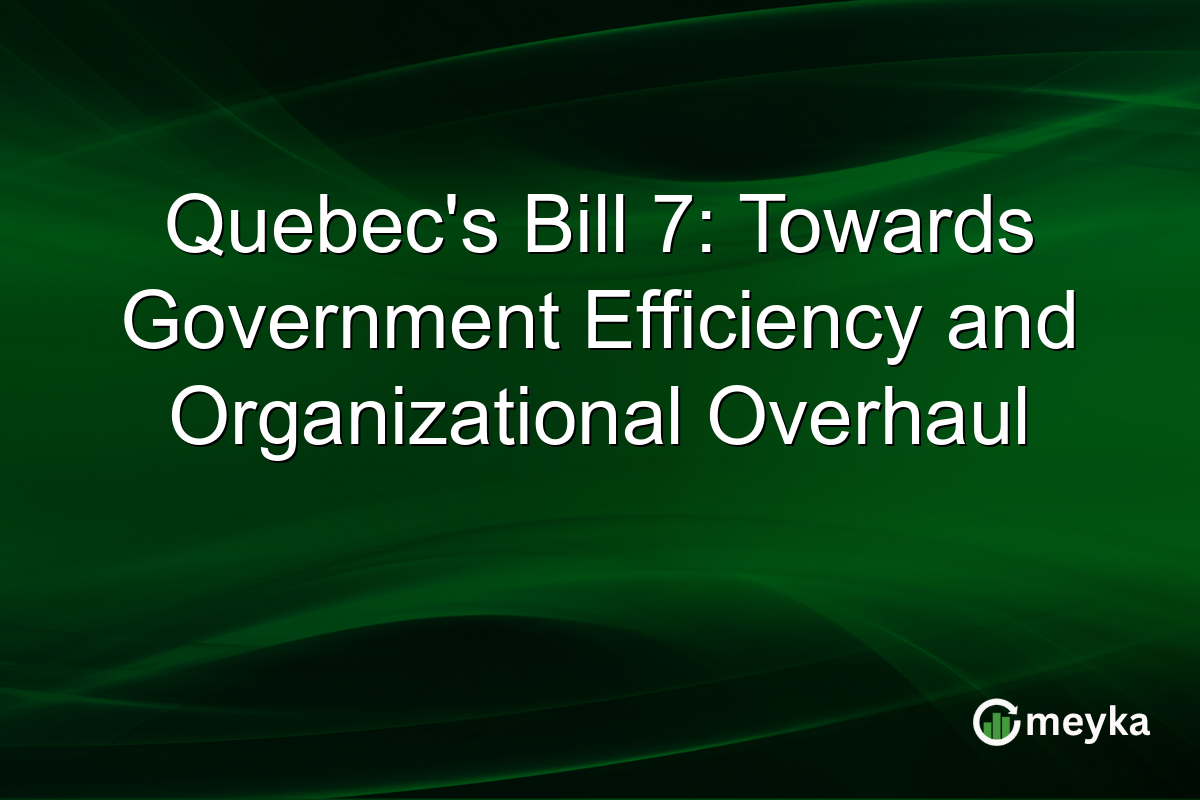Quebec’s Bill 7: Towards Government Efficiency and Organizational Overhaul
The introduction of Quebec’s Bill 7 marks a strategic move towards enhancing government efficiency through organizational reform. This legislation proposes the abolition or merger of several government agencies, targeting the reduction of bureaucratic redundancy. The implications of this reform extend not only to public sector employees but also to the quality and delivery of government services, igniting significant discussions about its potential impact on Quebec’s governance structure.
Continue Reading on Meyka
This article is available in full on our main platform. Get access to complete analysis, stock insights, and more.
Read Full Article →





